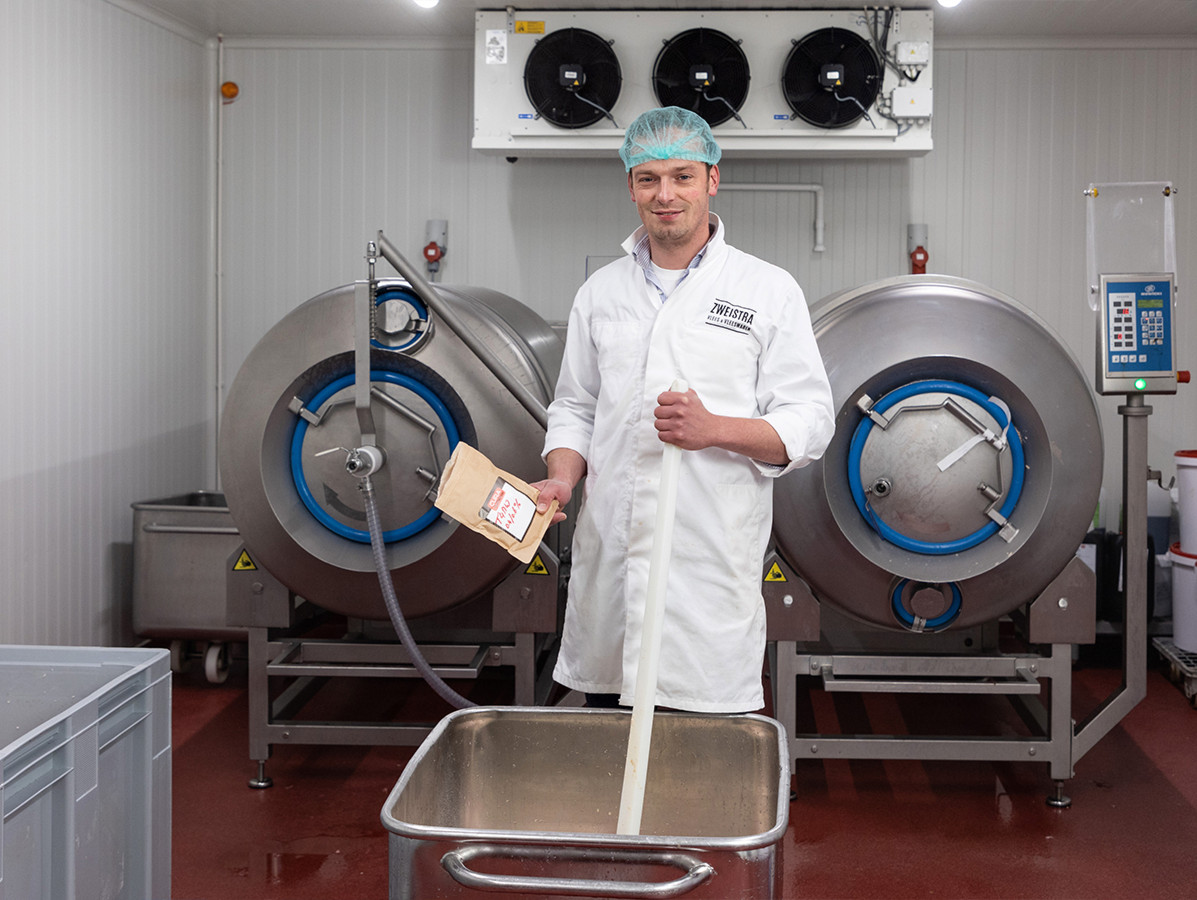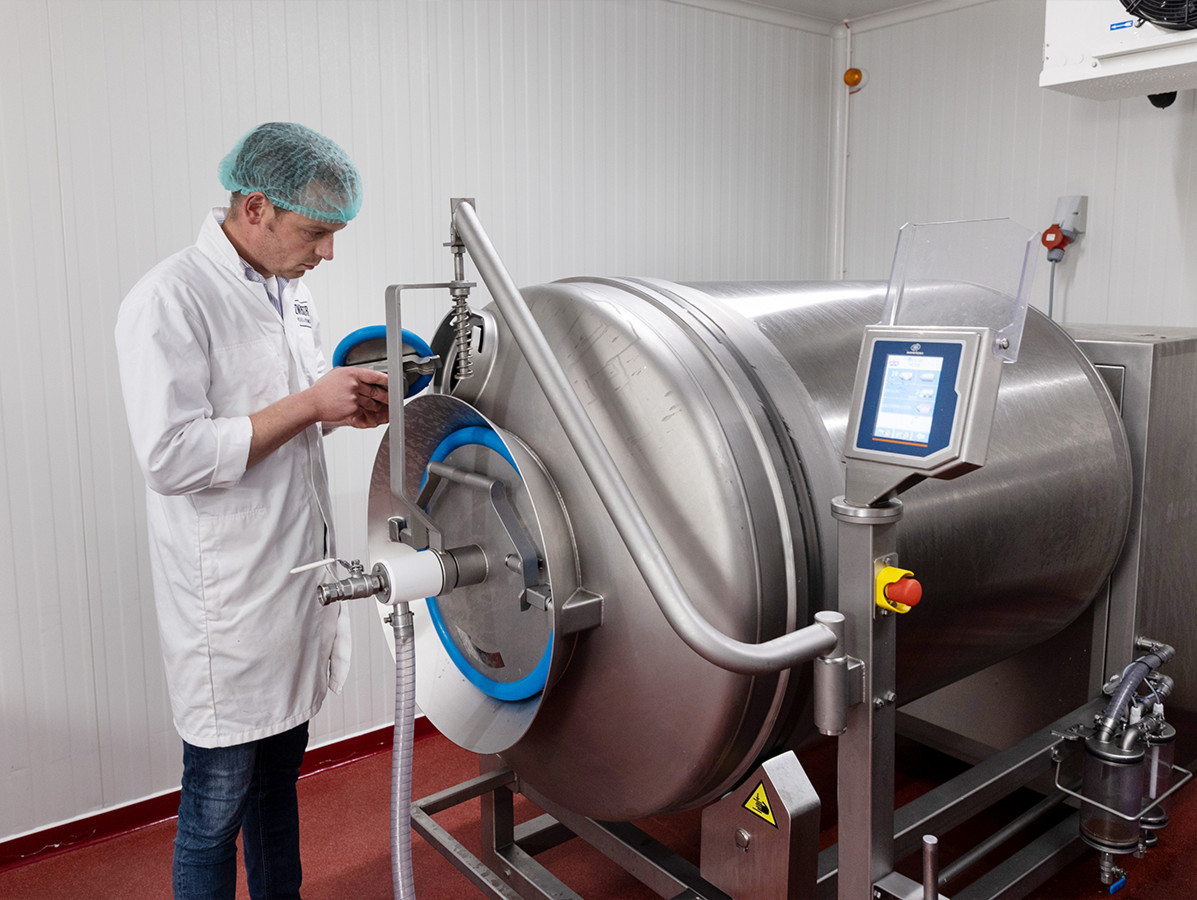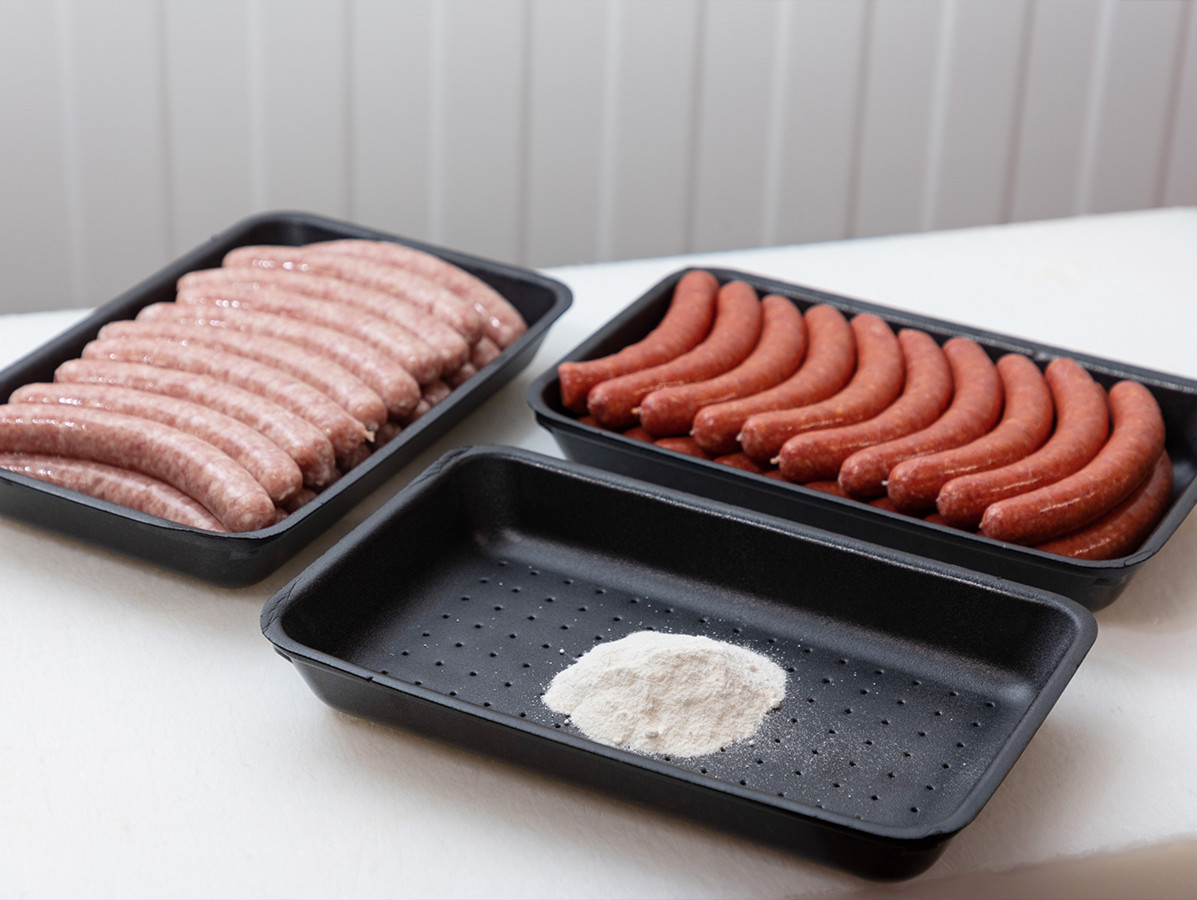
Butcher Zweistra is testing a whole new vegan-blend for his product range. Like many other food producers, he wants a clean label for his products. Natural additives can make an important contribution to this.
Keeping food fresh, safe and appealing for as long as possible in accordance with the rules, without making concessions on taste - it is a challenge that manufacturers regularly face. This is also the case in the meat industry. The use of additives makes a lot of things possible. "But despite their necessity, they have nothing to do with the original product", says Henk Zweistra, director and owner of Zweistra Vlees & Vleeswaren in Leerdam. "Butchers used to use sulphite for colour preservation. That has been forbidden for some time. Nitrite is also no longer permitted in most raw meat products. Phosphates are also being eliminated. Although the harmfulness of some E-numbers can be discussed, it is known that many people are allergic to E621. Yet I have never seen really good substitutes. Until now."

With his own production facility, Zweistra serves butchers, wholesalers and the catering industry with a product range that varies from meat products to ready-to-eat products such as hamburgers and minced meat. Minced meat products account for a quarter of Zweistra's turnover. He recently started preparing some of his products with a new mix of additives, so that they now carry a clean label. The natural blend comes from CURA Biotech in Steenwijk. Henk: "By leaving out (unnecessary) synthetic additives in my recipes, I am going back to basics; to how the product was once intended. And at the same time I am aiming for a healthier future.
"Previously, ascorbic acid ensured colour retention. "That had the disadvantage that the minced meat soured more quickly. The new blend is easy to use. I dissolve it in water and then add it to the minced meat together with the spices. The mix ensures that the product remains fresh and looks appealing for longer, without changing the taste. A pioneering innovation.
CURA Biotech obtains unique micronutrients from the vegetable and fruit gardens of Europe. "Polyphenols in particular prove to be very strong and effective antioxidants," explains Hans Groenink, the company's managing director. "We use these polyphenols to replace nitrite, phosphate, lactate and di-acetate, so that a product (label) is really clean. We develop biotechnology-based solutions for the food industry; the Masterblends label is an example of this. It consists of clean label herbs and spices, mixes, marinades and sauces, and technical additives. All products are free of E numbers and allergens."
The Masterblends are extracted from the peel of citrus fruit and are completely vegan, so also suitable for use in plantbased foods. In July it became known that the NVWA is going to take enforcement action when clean label ingredients are actually unauthorised additives. "All our solutions comply with the latest additive, flavouring and labelling legislation of the Ministry of Health, Welfare and Sport," Hans emphasises. "We advise customers to list the Masterblends on the label as 'fruit and herb extract (antioxidant)'.

Back to Zweistra. Henk explains that the application of all natural blends in his food products was preceded by an extensive development process. Hans confirms this: "Starting point is always an analysis of the customer's existing processes. Zweistra has just completed this phase." After the minced meat products, they investigate the possibilities of blends for meat products, such as ham. "Recipes and specifications are completely dissected," says Henk. "For example, the brine mix has been stripped down to component level to find good alternatives. The whole process takes place in close cooperation with Cura Biotech. The result is a custom-made mix especially for us. Of course, this has consequences for our processes. For example, in this test phase we no longer work with the brine mix, but with loose spices. We will soon be investigating the possibilities for our grill and smoked sausages."
"The results are promising," says Henk enthusiastically. "With the natural additives, the ham keeps longer and retains its colour, without affecting the flavour. There are more advantages. The growth of the listeria bacterium is not inhibited - as happens with acids - but is killed off. And we save time. Normally, after injection with phosphates, our hams go into a tumbler machine for 14 hours and are tumbled to tenderise the meat. Thanks to the new blend, that's only six hours."
For the time being, tests are still being carried out on Zweistra's factory floor. If all goes well, Henk does not rule out a total switch; then he will go for a clean label for all his meat and meat products. "This will make products that are already appreciated and good, even better."
www.zweistravlees.nl
www.curabiotech.nl
Photos: © Herbert Wiggerman
Source: Vakblad Voedingsindustrie 2021